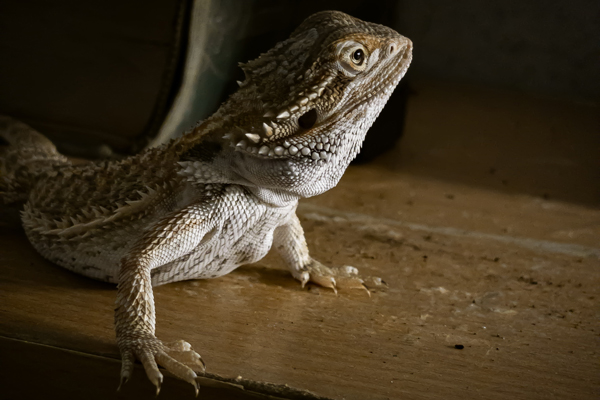
They may not top the list for ‘most huggable pets’, but lizards are wonderous creatures that can deliver companionship like no other. They are quiet and can be easy care creatures. However, lizards and other reptiles still require attention and affection to lead happy, healthy lives. Here are some tips and considerations to start your lizard-loving friendship.
Permits: Do not take animals from the wild as this can damage the native ecosystem and biodiversity. Lizards and reptiles should be purchased from licensed dealers or breeders. Permits are required to keep some reptiles as pets. There are specific rules and guidelines required by each state or territory, which are detailed on the NSW, QLD, VIC, SA, NT, TAS, ACT, and WA government websites. There are also minimum age restrictions for applying for a permit to keep a reptile.
Food: As omnivores, lizards enjoy a range of foods. Vegetables and insects such as crickets, cockroaches and snails make up a well-balanced diet for lizards. Like all pets, fresh water is vital and should be cleaned regularly – at least twice a week.
Habitat: Your lizard’s home should be draft and escape-proof. There should also be heating and lighting in the enclosure as lizards require heat to remain active and to help digest food. Monitor the temperature of the habitat, especially if using under-tank heaters, ceramic heaters, or basking bulbs to provide gradual heating throughout. Plants, rocks and branches will help your reptilian friend feel more at home and offer a place to hide and feel secure.
Holding lizards: Ensure you know your lizard’s breed personality, as some are more aggressive than others. Never pick up a lizard by its tail, and depending on the size of your lizard, you may need to handle them carefully – see handy tips here.
Health: Metabolic Bone Disease is common among lizards and can be caused by not having enough exposure to ultraviolet light or enough calcium in their diet. Symptoms include weakness in lifting itself, tremors and seizures. Seek advice from your vet if you are concerned about your lizard’s health.
Check out this lizard care sheet for more information about welcoming a lizard into your home.
Sources: